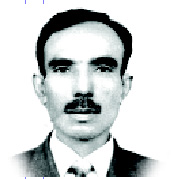Sajjad Shaukat
SINCE Indian extremist Prime Minister Narendra Modi’s administration revoked special status of the Jummu and Kashmir on August 5, this year after scrapping articles 35A and 370 of the Constitution in a malevolent attempt to turn Muslim majority into minority in the Indian Occupied Kashmir (IOK), India authorities have continued lockdown and curfew in the large parts of that region. Indian forces also martyred many people by accelerated firing at the stones-pelting Kashmiris who are protesting against Indian illegal actions. With the intensification of firing by the Indian Army across the Line of Control (LoC), which has been targeting the innocent civilians in Pakistani side of Kashmir, including Pakistan Army, tension has further increased between the two countries. However, both Pakistan and India are nuclear powers. Hence, alarming situation at the LoC has raised the question, does India wants nuclear war?
Meanwhile, Indian Defence Rajnath Singh on August 16, this year threatened Pakistan with nuclear war. On the other side, addressing a press conference on August 17, 2019 along with Pakistan’s Foreign Minister Shah Mahmood Qureshi, DG of ISPR Maj-Gen. Asif Ghafoor said that Pakistan Army was “ready to defend the country from any misadventure from India. Pakistan is a responsible state…Responsible states do not make statements like Rajnath’s…more troops are being sent to the Line of Control as deterrence”. Foreign Minister Shah Mahmood Qureshi who repeatedly condemned the statement of the Indian defence minister stated: “Pakistan is keeping a close eye on the evolving situation in the occupied Kashmir and also warned “the international community that India can carry out any false flag operation near the Line of Control to divert world attention from its illegal actions and human rights violations in Kashmir…we have doubts on the Indian intent and actions”.
On twitter, Pakistan’s Prime Minister Imran Khan pointed out on August 18, this year: “The world must seriously consider the safety and the security of India’s arsenal in the control of Modi Govt. amid India’s pledge to review its nuclear doctrine. This is an issue that impacts not just the region, but the world.” Earlier, Prime Minister Imran Khan has warned the international community of “severe repercussions and reactions”, if they “silently witness another Srebrenica-type massacre & ethnic cleansing of Muslims in IOK…If war breaks out in the region, the world powers and international bodies will be responsible as they have failed to implement the UN resolutions on Kashmir…[which] remains a nuclear flashpoint in the South Asian region”. It is notable that besides obtaining atomic weapons from the US and other Western countries, New Delhi is, clandestinely, importing nuclear arms and components from Israel. In this connection, Zionist-led Indo-Israeli secret diplomacy could be assessed from the interview of Israel’s ambassador to India, Mark Sofer, published in the Indian weekly Outlook on February 18, 2008. Regarding India’s defence arrangements with Tel Aviv, Sofer had surprisingly revealed: “We do have a defence relationship with India, and “with all due respect, the secret part will remain a secret.” It is mentionable that BJP leader Dr. Subramaniam Swami had stated on July 12, 2014 that India needed only two years to defeat Pakistan militarily, and the only solution of Kashmir was war, as “there is no peaceful, democratic solution.”
However, it is wishful thinking of the BJP leader and the Indian defence minister that India can defeat Pakistan through atomic war. While, both the adversaries are nuclear powers, New Delhi has been ignoring the principles of deterrence, popularly known as balance of terror. After the World War 11, nuclear weapons were never used, and were only employed as a strategic threat. During the heightened days of the Cold War, many crises arose in Suez Canal, Korea, Cuba and Vietnam when the US and the former Soviet Union were willing to use atomic weapons, but they stopped because of the fear of nuclear war which could eliminate both the super powers. Therefore, the two rivals preferred to resolve their differences through diplomacy.
Political strategists agree that deterrence is a psychological concept which aims to affect an opponent’s perceptions. In nuclear deterrence, weapons are less usable, as their threat is enough in deterring an enemy who intends to use its armed might. In this context, a renowned scholar, Hotzendorf remarks that nuclear force best serves the interests of a state when it deters an attack. Nevertheless, BJP-led government of Modi is badly mistaken, if it overestimates India’s power and underestimates Pakistan’s power. A prolonged conventional conflict between them could culminate into nuclear war, resulting into the political suicide of both the countries. In the past too, Indian rulers had intended to employ their doctrine of limited war in Kashmir or to fight a conventional war with Pakistan, but they could not do so owing to Pakistan’s nuclear weapons. Unlike the former Soviet Union and the USA, war-like situation exists between New Delhi and Islamabad due to the perennial firing by the Indian forces across the LoC and in wake of the unresolved issue of Kashmir. At present, fanatic leaders are in power India and Israel and they are in collaboration against the Muslims and Pakistan. So, in order to avoid the solution of Kashmir dispute and in failure to suppress the war of liberation in the occupied Kashmir, extremist Prime Minister Modi can take the risk of nuclear war with Pakistan.
—The writer is freelance columnist based in Lahore.










